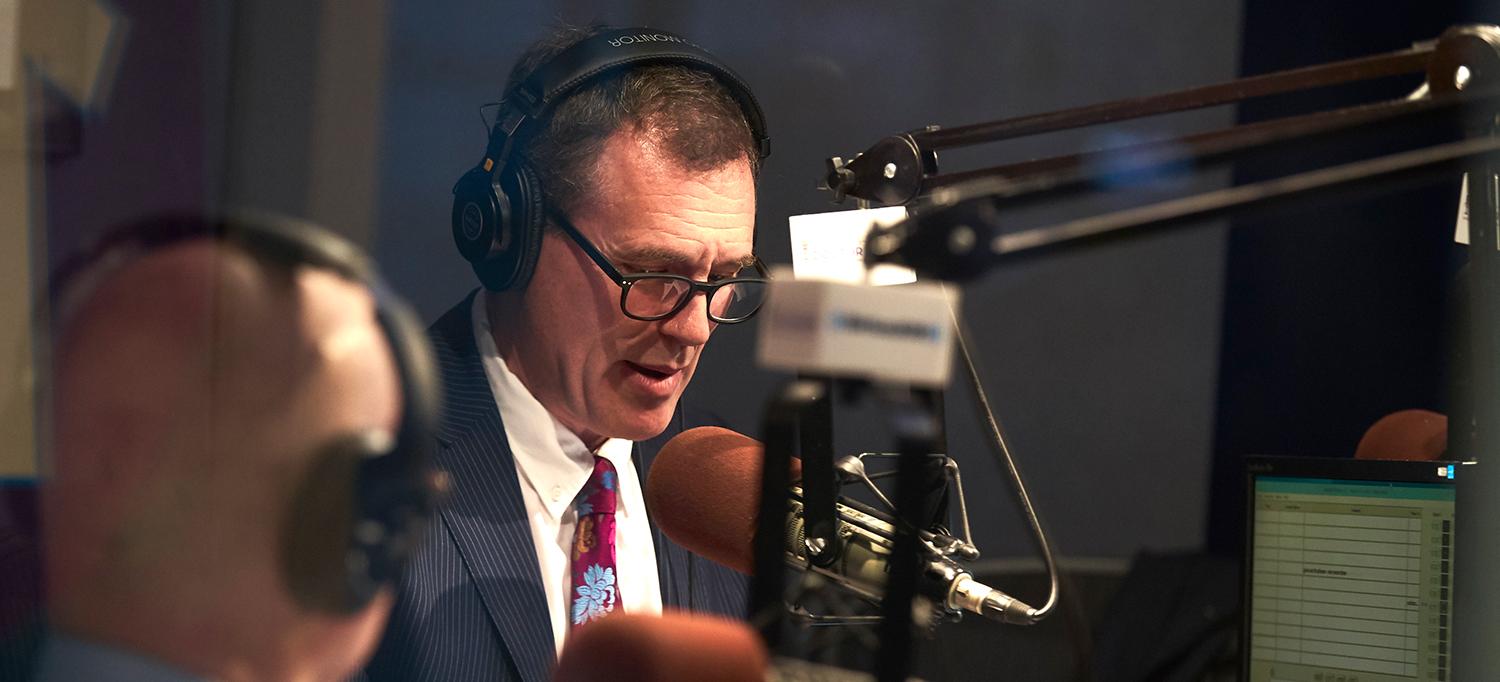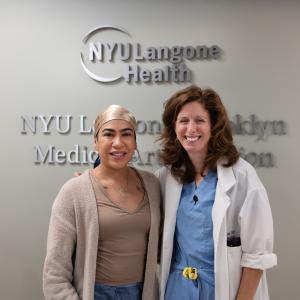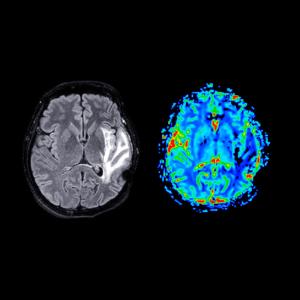
Rusk Rehabilitation experts like Dr. Jonathan H. Whiteson use digital platforms to share best practices on rehabilitation services for patients with COVID-19.
Photo: NYU Langone Staff
Since its founding in 1948, Rusk Rehabilitation—the first university-affiliated academic center devoted to rehabilitation medicine, and still one of the largest institutions of its kind—has been dedicated to sharing its expertise with the field at large and with the general public. The coronavirus disease (COVID-19) pandemic has made that mission more urgent than ever, spurring educational efforts through a variety of digital outlets.
Webinar Series Offers Insights for Frontline Workers
As New York City became the national epicenter of the pandemic in March 2020, Rusk Rehabilitation experts worked alongside frontline teams throughout the NYU Langone Health system, continuously adapting best practices to provide optimal rehabilitation services for patients with COVID-19. They also began hearing from colleagues who knew they could soon face similar onslaughts.
“Physiatrists across the country needed advice on what to do when these cases came their way,” recalls Alex Moroz, MD, MHPE, associate professor of rehabilitation medicine, vice chair for education, and director of the Physical Medicine and Rehabilitation Residency. “The challenge was how to get that information to them quickly and effectively.”
Dr. Moroz turned to Blue Sky, the online learning management platform that Rusk Rehabilitation uses for virtual training courses. Within a week he and his team had produced the first installments of a seven-episode video series titled “COVID-19 Conversations: Powered by Rusk Rehabilitation.”
The webinars take the form of dialogues between Rusk Rehabilitation experts and a multidisciplinary team of clinicians moderated by Jonathan H. Whiteson, MD, associate professor of rehabilitation medicine and medicine, vice chair for Rusk Rehabilitation clinical operations, and medical director of cardiac rehabilitation, and Lyn D. Weiss, MD, professor of rehabilitation medicine and chair of the Physical Medicine and Rehabilitation Service at NYU Langone Hospital—Long Island. Topics include when to admit a patient with COVID-19 to an acute rehabilitation unit, what rehabilitation looks like for this patient population, the transformation of pulmonary rehabilitation, vital sign parameters during rehabilitation, and how to safely reopen outpatient rehabilitation facilities in the wake of the pandemic.
The sessions range in length from under 15 minutes to approximately 1 hour. To date, they have been downloaded more than 8,600 times.
A Long-Running Podcast Tackles the Pandemic
A more generalized educational resource is the weekly Rusk Insights on Rehabilitation Medicine podcast, which features discussions with Rusk Rehabilitation researchers, clinicians, and educators, as well as healthcare leaders at other institutions who have participated in grand rounds and research symposia with Rusk Rehabilitation. Hosted by Thomas Elwood, DrPH, retired executive director of the Association of Schools of Allied Health Professions, the series has covered a wide range of conditions over the past five years. Since the onset of the pandemic, however, its focus has frequently turned to COVID-19.
Recent episodes have covered topics such as advances in research in rehabilitation for the disease; inpatient rehabilitation during the pandemic; techniques for prone positioning, wound care, and neurorehabilitation in patients with COVID-19; and the impact of the coronavirus on hand therapy.
One of the nation’s longest-running podcasts on rehabilitation medicine, Rusk Insights reaches listeners in more than 40 countries. The program was conceived by Rusk Rehabilitation’s Education Excellence Committee, led by Dr. Moroz and Angela M. Stolfi, DPT, clinical instructor of rehabilitation medicine and director of physical therapy at Rusk Rehabilitation. “The committee’s mission is to improve rehab education in every discipline, across the continuum of care,” Dr. Stolfi says.
That commitment has also driven the development of several groundbreaking post-professional programs in recent years, including the first neurological physical therapy residency in the city, the first acute care residency in the region, and one of the first performing arts fellowships in the nation.
“There are many groups that provide continuing education in rehabilitation, but we think there’s a special value in providing it from an institution that’s a leader in clinical care,” Dr. Stolfi adds. “We’re there in the trenches, and we’re talking about what we see.”
A Digital Radio Show Provides the Public with Expert Information
While the web-based programs mentioned above are geared toward healthcare providers, another of Rusk Rehabilitation’s digital offerings is aimed primarily at laypeople. NYU Langone’s SiriusXM channel, Doctor Radio, offers 26 regularly scheduled shows covering different medical specialties, hosted by more than 60 of the health system’s medical experts. On Monday mornings, Dr. Whiteson hosts a two-hour slot on rehabilitation medicine.
Before the pandemic, the show often covered topics related to current events—discussing post-mastectomy rehabilitation during Breast Cancer Awareness Week, for example, or broadcasting live from the American Academy of Physical Medicine and Rehabilitation Annual Assembly. That focus on newsworthiness has continued during the coronavirus crisis. For most of 2020, Dr. Whiteson notes, “every week we’ve talked about the impact of COVID-19 on our health and how that relates to rehabilitation. And we’ve not yet run out of topics.”
Since March, he and his guests have discussed issues including the benefits of wearing a mask, COVID-19–era CPR safety, and the implications of the coronavirus for pulmonary and rheumatological rehabilitation. Several of those episodes have also been excerpted as part of Doctor Radio’s new podcast series Coronavirus: Everything You Need to Know.
Accessible online and via satellite radio to anyone with a SiriusXM subscription, the channel has a nationwide following. “Although our show targets a lay audience,” Dr. Whiteson says, “you’d be surprised at how many professionals call in and ask questions—not just rehab colleagues, but dentists and primary care physicians and physician assistants. They find it a valuable source of information and a place to come for guidance on complex cases that they’re dealing with in their own practices.”

